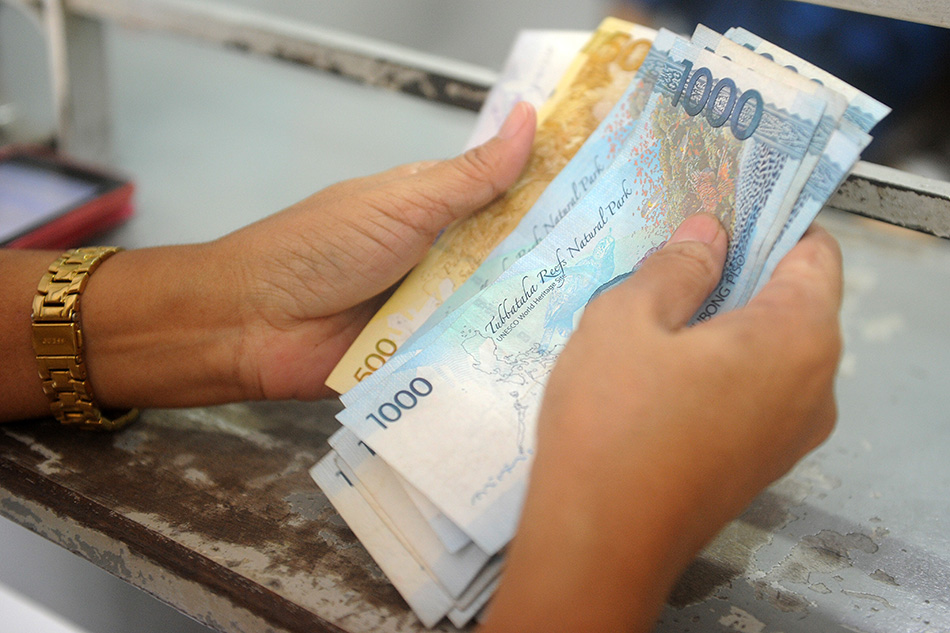Why the Philippine peso is defying global rout due to COVID 19 | ABS-CBN
ADVERTISEMENT

Welcome, Kapamilya! We use cookies to improve your browsing experience. Continuing to use this site means you agree to our use of cookies. Tell me more!
Why the Philippine peso is defying global rout due to COVID 19
Why the Philippine peso is defying global rout due to COVID 19
Michelle Ong,
ABS-CBN News
Published Mar 10, 2020 12:11 PM PHT
MANILA -- The Philippine peso stood its ground against the dollar Tuesday, defying a global equities tailspin on the back of cheaper oil imports and as investors spooked by the COVID-19 outbreak seek safer, higher yield assets, analysts said.
MANILA -- The Philippine peso stood its ground against the dollar Tuesday, defying a global equities tailspin on the back of cheaper oil imports and as investors spooked by the COVID-19 outbreak seek safer, higher yield assets, analysts said.
The peso opened at P50.57 to the dollar from Monday's close of P50.58. The Philippine Stock Exchange Index on the other hand sank deeper into bear market territory, down 0.66 percent at noon trading.
The peso opened at P50.57 to the dollar from Monday's close of P50.58. The Philippine Stock Exchange Index on the other hand sank deeper into bear market territory, down 0.66 percent at noon trading.
Oil prices in the world market fell to a 30-year low due to a trade war between top producers Saudi Arabia and Russia. The Philippines imports most of its oil requirements.
Oil prices in the world market fell to a 30-year low due to a trade war between top producers Saudi Arabia and Russia. The Philippines imports most of its oil requirements.
Investors seeking safe havens are moving from stocks to government securities and Philippine government bonds offer relatively higher yields, said BDO Unibank chief investment strategist Jonas Ravelas.
Investors seeking safe havens are moving from stocks to government securities and Philippine government bonds offer relatively higher yields, said BDO Unibank chief investment strategist Jonas Ravelas.
ADVERTISEMENT
"You want to invest here. This creates an attraction to Philippine assets with the exception of equities, which is infected with fear," Ravelas told ABS-CBN News.
"You want to invest here. This creates an attraction to Philippine assets with the exception of equities, which is infected with fear," Ravelas told ABS-CBN News.
Referring to falling oil prices, Ravelas said: "It helps too as lower rates favor us."
Referring to falling oil prices, Ravelas said: "It helps too as lower rates favor us."
"The peso is showing there is still indeed some thrust left in the strength of the local economy," said First Metro analyst Robbie Samson.
"The peso is showing there is still indeed some thrust left in the strength of the local economy," said First Metro analyst Robbie Samson.
Stocks are currently the riskier asset due to uncertainty over the COVID 19 outbreak. "Investors are more willing to sell them down than the currency," he said.
Stocks are currently the riskier asset due to uncertainty over the COVID 19 outbreak. "Investors are more willing to sell them down than the currency," he said.
President Rodrigo Duterte on Monday declared a state of public health emergency and suspended classes in the entire Metro Manila from Tuesday until Saturday to halt the spread of the coronavirus.
President Rodrigo Duterte on Monday declared a state of public health emergency and suspended classes in the entire Metro Manila from Tuesday until Saturday to halt the spread of the coronavirus.
Read More:
peso
Philippine peso
peso coronavirus
peso COVID 19
economy
stocks
Philippines bear market
coronavirus
COVID 19
oil
ADVERTISEMENT
ADVERTISEMENT


